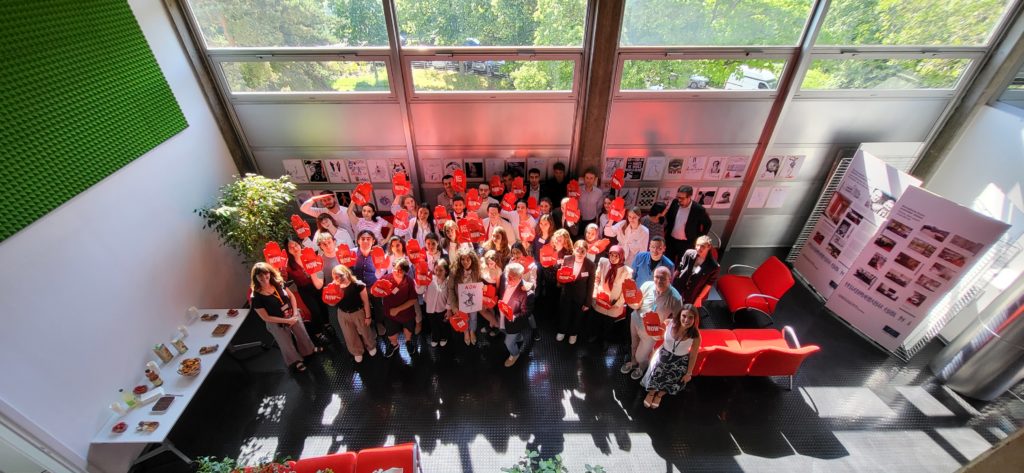
During two days, 18 delegates shared their knowledge and experience at the European Youth Center before a full room of futur figures of the universal abolition of the death penalty.
A strong commitment to the abolition of the death penalty from the very start of training
Christos Giakoumopoulos, Director General of Human Rights and Rule of Law of the Council of Europe, Marie Fontanel, Ambassador, Permanent representative of France at the European Council and Nicolas Perron, ECPM Director of programmes, shared the seat to open the very first edition of this training, “Death is not justice”. While several reminders were made about the worrying resurgence of the death penalty in many countries, a great deal of hope and pride still emerged from the various speeches, reminding this first class that they all embody the future of the abolitionist cause.
Conferences and activities on the abolition of the death penalty in Europe and the death penalty worldwide then set the pace for the morning. Sergey Dikman, Legal Adviser and Head of Unit at the Council of Europe, Solène Paloma, Education Project Manager at ECPM, Aymeric Elluin, Advocacy Officer for Amnesty International France, and Judge at the European Court of Human Rights Latif Hüseynov took turns to address these different themes.
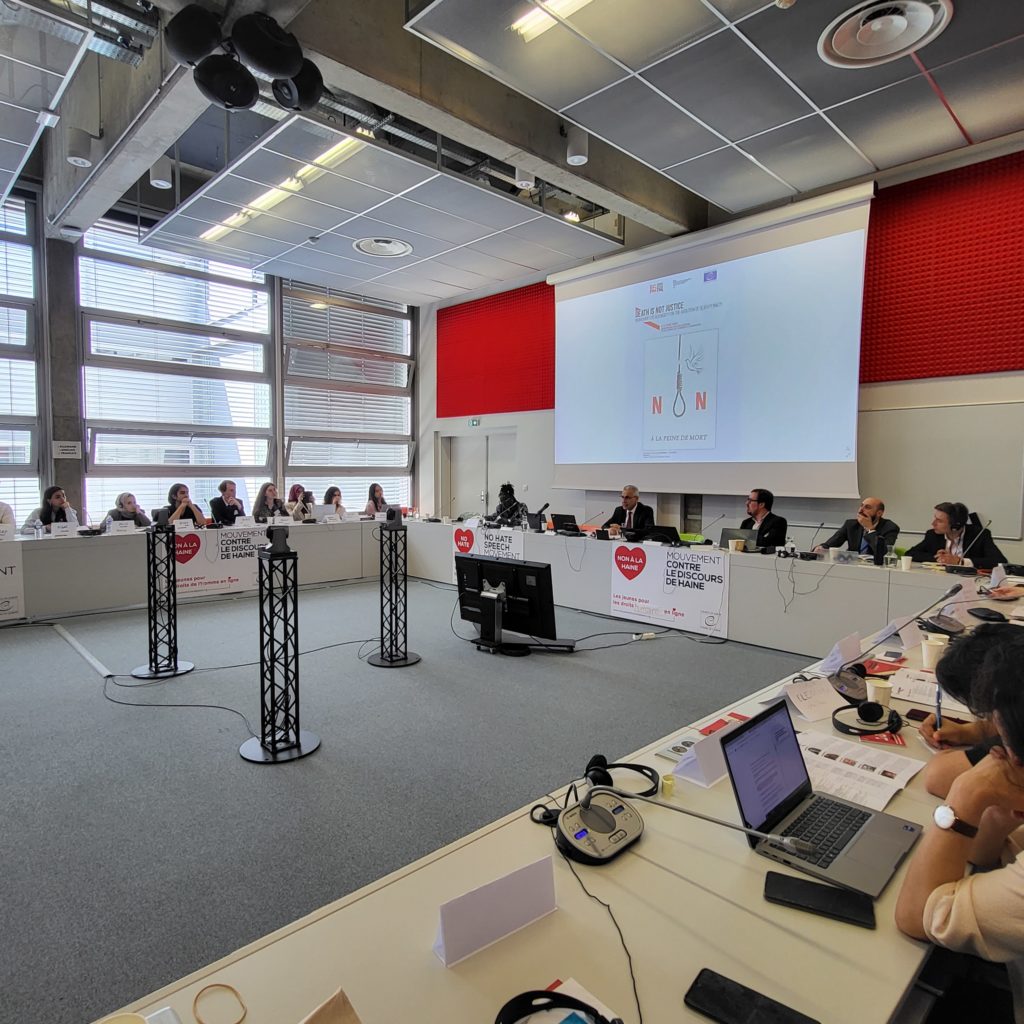
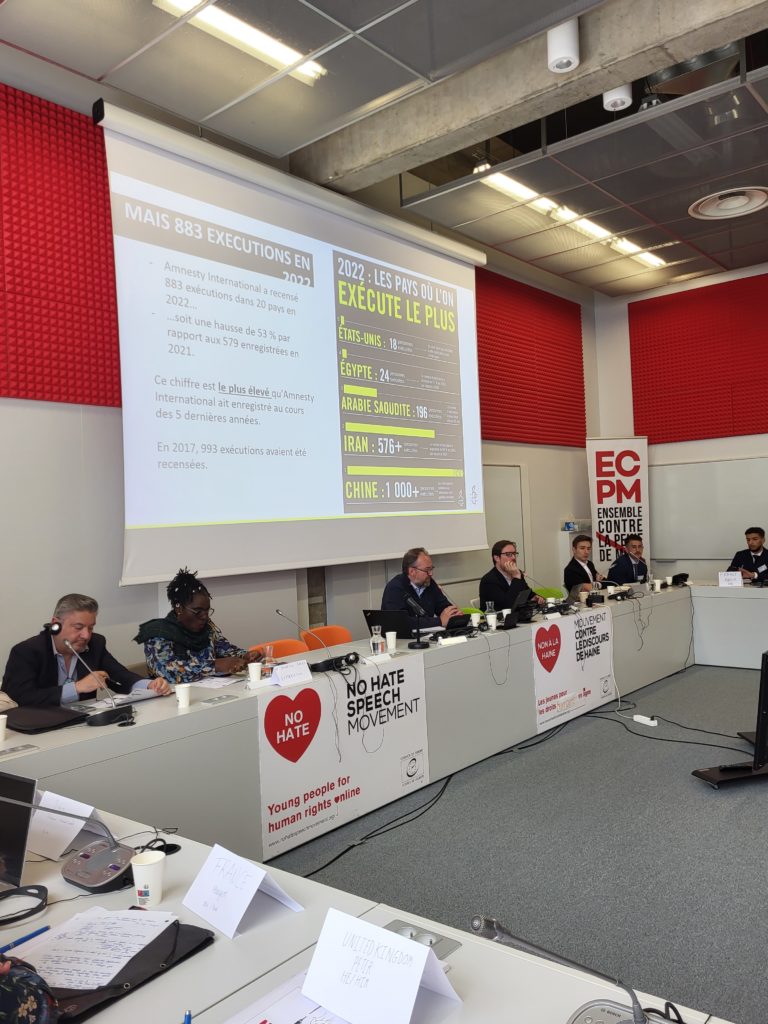
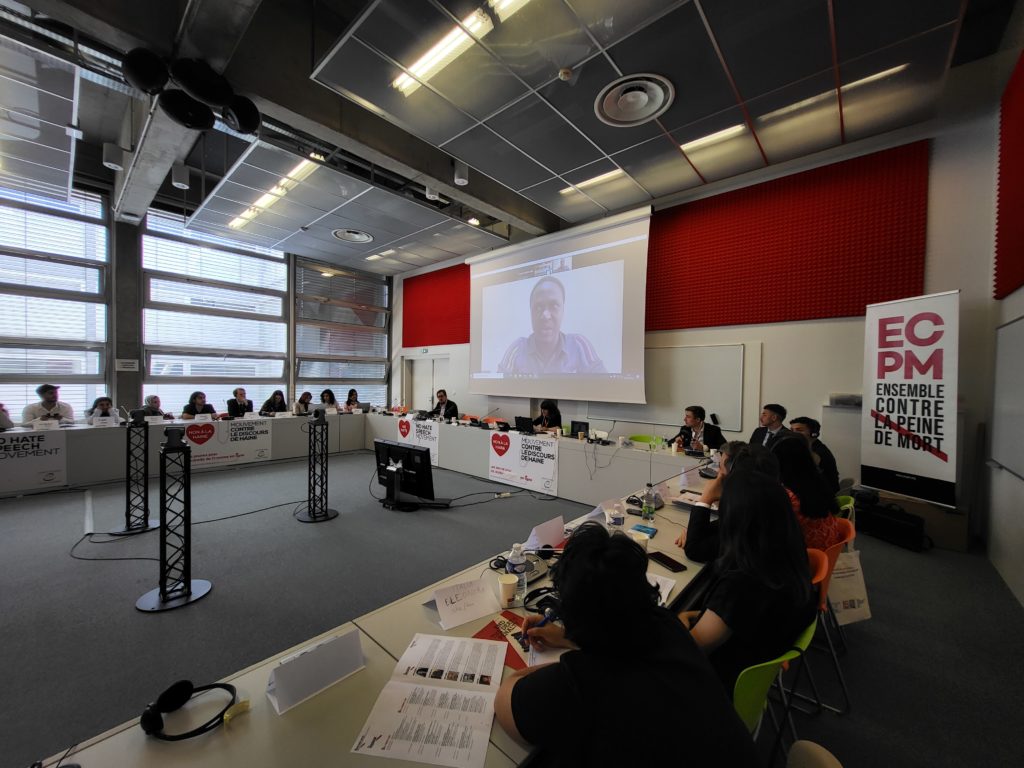
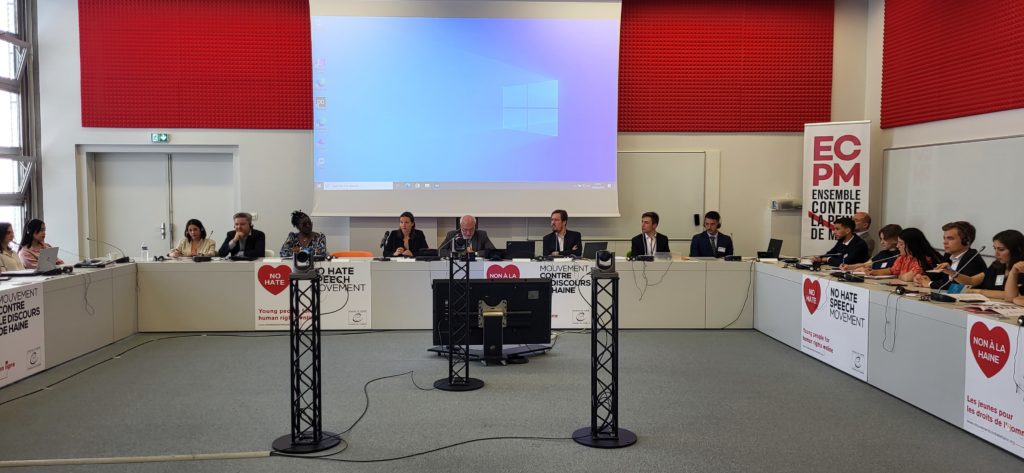
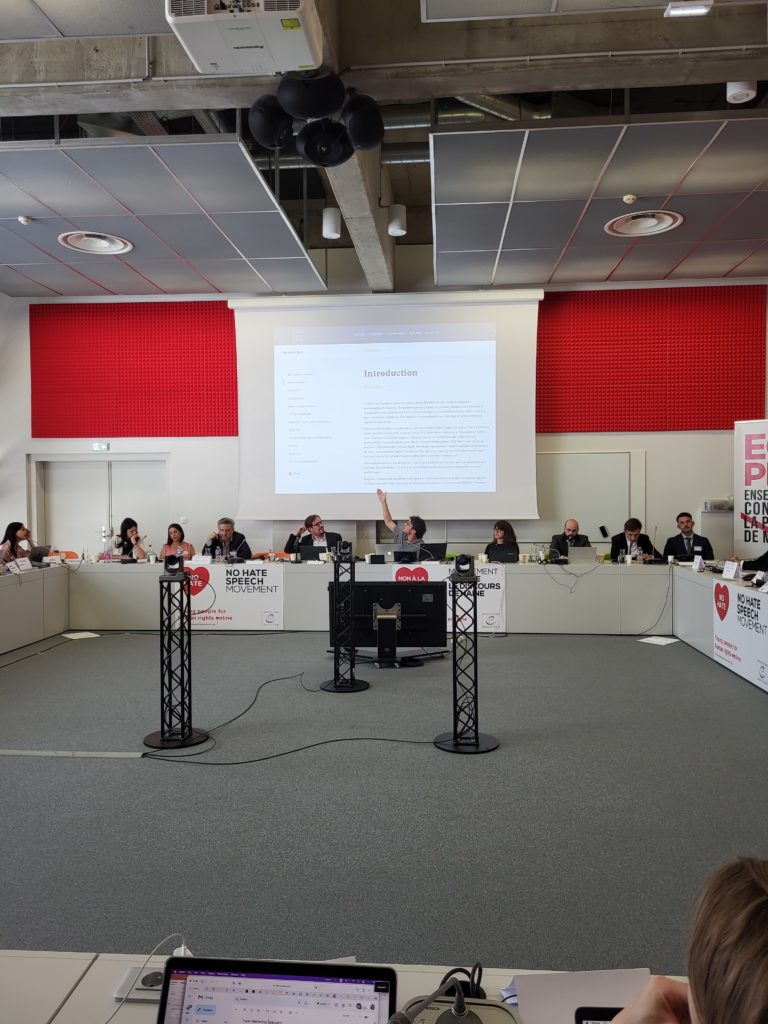
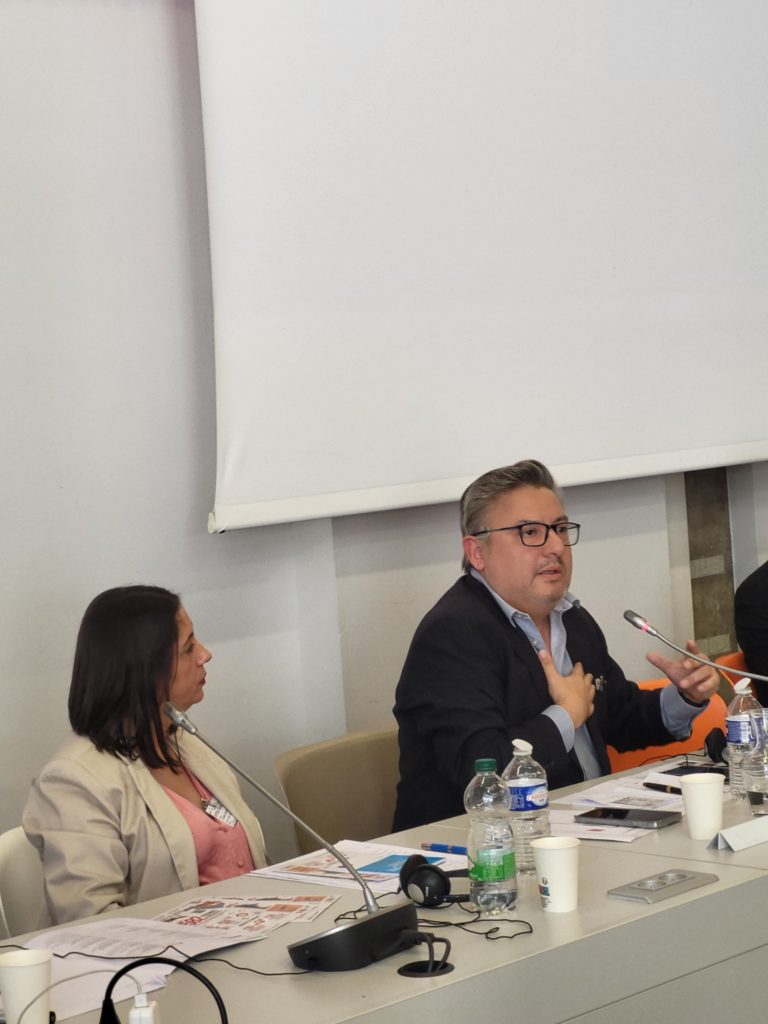
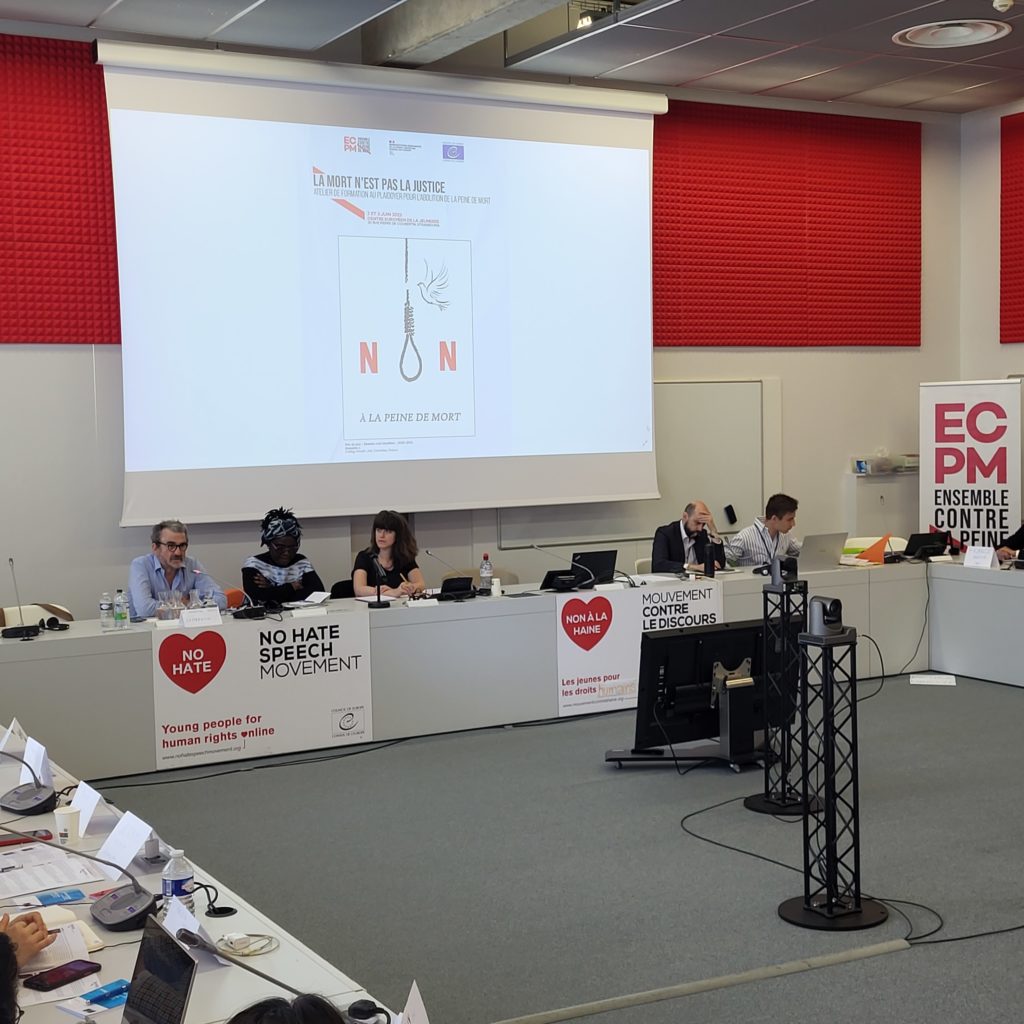
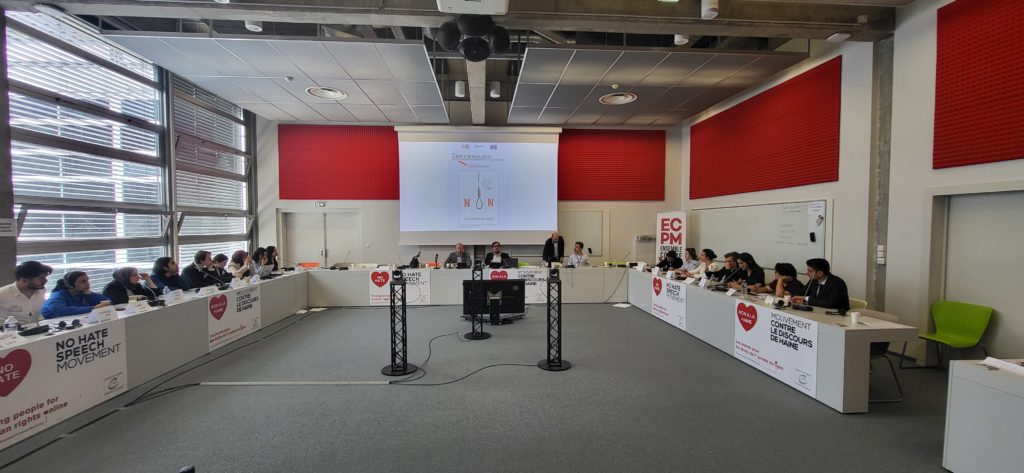
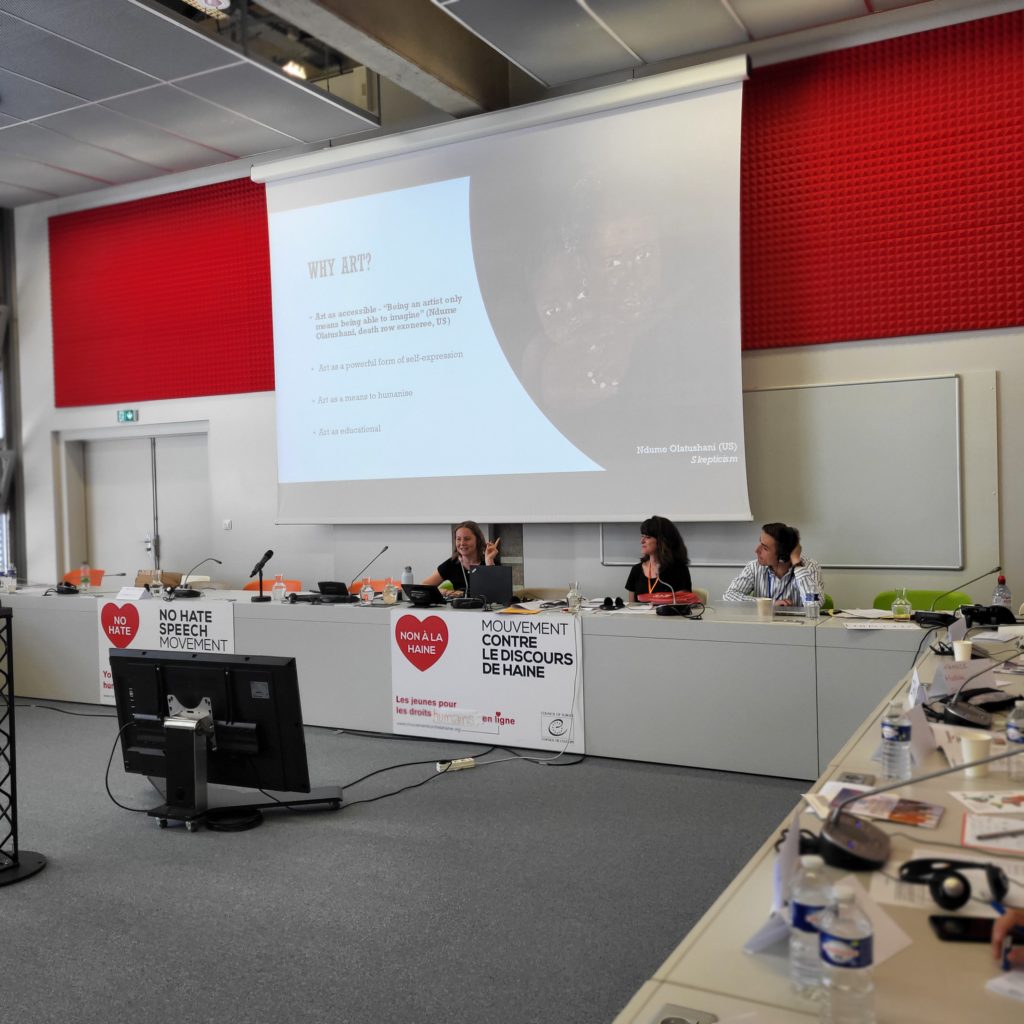
Focus on discrimination against sexual and gender minorities
On the occasion of Pride Month, the theme “Sexual Minorities, Gender-Based Discrimination, and the Death Penalty” was also addressed during this first day. Following presentations by Laure Boukabza, Head of the Education Program at ECPM, on the campaign “Love is Not a Crime,” as well as the report “10 questions on the death penalty for LGBTQIA+ people (2022)” Edward Mutebi, a human rights advocate, LGBTQIA+ activist, and founder of the organisation Let’s Walk Uganda, responded to the adoption of the law making homosexuality punishable by penalties ranging from 20 years of imprisonment to the death penalty. He explained the role of activists in the fight against the resurgence of the death penalty in Uganda and around the world.
Testimonials and art to boost advocacy
The day concluded with presentations by Mehdi Faiez, Production Manager for Prison Insider, on the conditions of detention for death row inmates, and Joaquin José Martinez, a former death row inmate in the United States. Convicted of capital punishment for a double murder and later acquitted after spending over 3 years on death row, Joaquin José Martinez shared his experience of death row with the audience and his deep emotion in witnessing the youth engage with this topic:
“While I’m used to telling my story, I usually do it in front of audiences that need to be convinced. Here, you already are, and I’m moved to see so many young people committed to this theme and that universal abolition is getting closer thanks to you.”
Joaquin José Martinez
His wife, Jessica Llorens Cortes, was also present to support him and provide the perspective of loved ones of death row inmates.
On Friday, the training session continued with a joint presentation by Maîtres Sandrine Dacga and Richard Sédillot, who shared their experiences as lawyers for death row inmates and explained the importance of the lawyer’s role in the abolitionist process.
Glenn Payot, a consultant for the United Nations, responsible for UN advocacy for the Impact Iran Coalition and a representative of Minority Rights Group International at the UN, then presented various advocacy methods. This was to enable the 35 young participants to apply these methods during the role-playing simulation of the United Nations resolution vote, which called for a universal moratorium on the implementation of the death penalty.
The last session of the day was dedicated to raising awareness about the abolition of the death penalty in arts. Amelia Inglis, a Ph.D. law student and the initiator of the “Voices from Death Row” exhibition, came to explain the process of creating her exhibition to the young European citizens. This session also provided the opportunity to announce the results of the “Draw Me Abolition” contest and to showcase the 50 winning posters that were displayed at the European Youth Centre for the occasion. For the first time in the history of the contest, a Youth Prize was also awarded by the young participants of the “Death is not Justice” training to Issa Samba from the Institute of Fine Arts in Kisangani, Democratic Republic of Congo.
Finally, Marta Saraiva, Deputy Permanent Representative to the Mission of Portugal to the Council of Europe, Sebastien Potaufeu, Deputy Permanent Representative to the Mission of France to the Council of Europe, and Sergey Dikman concluded these two days of advocacy and awareness training for the abolition of the death penalty. They closed the session with the promise that this first edition would not be the last!